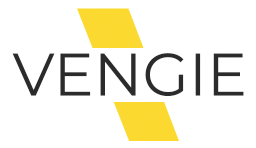Table of Contents
Unveiling the Role and Importance of Notary Public in Dublin
Notary public services are an essential component of legal systems worldwide, and Dublin, Ireland, is no exception. In this section, we’ll delve into the definition and significance of notary public services, particularly within the context of Dublin’s legal landscape.
Definition and Overview of Notary Public:
- Define what a notary public is: a public officer appointed by a government authority to serve as an impartial witness in performing various official acts related to the signing of legal documents.
- Explain the historical origins of notary services and how they have evolved over time to meet modern legal needs.
- Highlight the role of notaries in maintaining the integrity and authenticity of legal documents through impartial verification and certification.
Purpose of Notary Services:
- Discuss the primary functions served by notaries, including the authentication of signatures, administration of oaths, and certification of copies of documents.
- Emphasize the importance of notary services in facilitating transactions, ensuring legal compliance, and preventing fraud.
- Explore how notaries play a crucial role in both personal and business matters, ranging from real estate transactions to international trade agreements.
Significance in Dublin’s Legal Landscape:
- Provide an overview of the legal system in Dublin and how notary services fit into the broader framework of Irish law.
- Highlight the specific roles and responsibilities of notaries in Dublin, including any unique requirements or regulations governing their practice.
- Discuss the importance of notaries in promoting trust and confidence in legal transactions, both domestically and internationally, and their contribution to the overall efficiency and effectiveness of the legal system in Dublin.
Understanding the Duties of a Notary Public
A notary public in Dublin, as in any jurisdiction, carries out several essential duties aimed at ensuring the authenticity and legality of various documents and transactions. Below, we’ll explore the core responsibilities of a notary public:
Authentication of Documents:
- Explain how notaries verify the identity of signatories and witness their signatures on documents.
- Discuss the importance of notarization in providing an independent and impartial verification of the authenticity of legal documents.
- Highlight common types of documents that require notarization, such as affidavits, contracts, deeds, and powers of attorney.
Administering Oaths and Affirmations:
- Describe the role of notaries in administering oaths and affirmations to individuals swearing to the truthfulness of statements or declarations.
- Explain the difference between an oath and an affirmation and when each may be appropriate.
- Discuss the legal significance of oaths and affirmations in various contexts, such as court proceedings, affidavits, and witness statements.
Witnessing Signatures:
- Explore the importance of having a notary witness the signing of legal documents to deter fraud and ensure the validity of signatures.
- Explain the process by which a notary verifies the identity of signatories and observes them as they sign documents in their presence.
- Discuss the legal requirements for witnessing signatures in Dublin, including any specific rules or regulations governing notarial acts.
Certifying Copies of Documents:
- Outline the process by which notaries certify copies of original documents, such as passports, birth certificates, and academic transcripts.
- Explain the legal significance of certified copies and their acceptance as valid substitutes for the originals in various official transactions.
- Provide examples of situations where certified copies may be required, such as applying for a mortgage, obtaining a visa, or submitting evidence in court proceedings.

The Legal Framework for Notary Public in Dublin
In Dublin, as in all of Ireland, the practice of notary public services operates within a defined legal framework. Understanding the regulatory environment and licensing requirements is crucial for both notaries public and individuals seeking their services. Let’s explore the key aspects of the legal framework for notary public in Dublin:
Regulatory Bodies and Licensing Requirements:
- Identify the regulatory bodies responsible for overseeing notary public services in Dublin, such as the Law Society of Ireland or the Faculty of Notaries Public in Ireland.
- Discuss the qualifications and licensing requirements for individuals aspiring to become notaries public, including educational background, professional experience, and passing examinations or assessments.
- Highlight any ongoing professional development requirements or continuing education obligations for licensed notaries to maintain their status.
Compliance and Ethical Standards:
- Outline the ethical standards and codes of conduct that govern the conduct of notaries public in Dublin, emphasizing principles such as impartiality, confidentiality, and integrity.
- Explain the legal obligations of notaries to comply with relevant laws and regulations, including data protection laws and anti-money laundering provisions.
- Discuss the consequences of breaching ethical standards or regulatory requirements, including disciplinary actions, fines, or revocation of notarial commissions.
Professional Associations and Networks:
- Explore the role of professional associations and networks in supporting notaries public in Dublin, such as the Irish Notaries Society or regional notary associations.
- Highlight the benefits of membership in professional organizations, such as access to resources, networking opportunities, and professional development programs.
- Discuss how professional associations promote best practices, facilitate collaboration among notaries, and advocate for the interests of the profession within the legal community and government bodies.

Exploring the Notary Services Available in Dublin
Dublin offers a range of notary services tailored to meet the diverse needs of individuals, businesses, and organizations. Whether you require traditional notarial services or more specialized assistance, understanding the options available can help you navigate the process effectively. Let’s explore the various notary services offered in Dublin:
Traditional Notarial Services:
- Discuss the typical services provided by traditional notaries public in Dublin, including witnessing signatures, certifying copies of documents, and administering oaths and affirmations.
- Highlight the importance of traditional notarial services in ensuring the legality and authenticity of important documents and transactions, such as property transfers, wills, and international business agreements.
- Provide examples of situations where individuals or businesses may require traditional notary services, such as executing powers of attorney, verifying identity documents, or authenticating business contracts.
Mobile Notary Services:
- Explain the concept of mobile notary services, where notaries travel to the location of the client to perform notarial acts.
- Discuss the benefits of mobile notary services, including convenience, flexibility, and accessibility for clients who may have mobility issues or time constraints.
- Highlight the types of documents and transactions that can be handled through mobile notary services, such as real estate closings, hospital visits, or corporate meetings.
Online Notary Services:
- Introduce the concept of online notary services, where notarial acts are conducted remotely via secure digital platforms.
- Explain the legal framework governing online notarization in Dublin, including regulations related to electronic signatures, identity verification, and data security.
- Discuss the advantages of online notary services, such as convenience, efficiency, and accessibility for clients located anywhere with internet access.
- Address any concerns or limitations associated with online notarization, such as authentication protocols, document formats, and jurisdictional requirements.
Specialized Notary Services for Businesses and Individuals:
- Explore specialized notary services tailored to the needs of specific industries or sectors, such as real estate, finance, healthcare, or international trade.
- Highlight the expertise and experience of notaries who specialize in serving particular clientele or handling complex transactions.
- Discuss the value-added services offered by specialized notaries, such as document preparation, legal advice, or transaction management, to support clients throughout the process.

Benefits of Utilizing Notary Public Services
Utilizing notary public services in Dublin offers a multitude of benefits for individuals, businesses, and organizations alike. From ensuring legal validity to mitigating risks, these services play a crucial role in various aspects of daily life. Let’s explore the key benefits of utilizing notary public services:
Legal Validity and Compliance Assurance:
- Highlight how notary public services provide assurance of the legal validity and enforceability of documents and transactions.
- Explain how notarial acts help ensure compliance with relevant laws, regulations, and contractual requirements.
- Discuss the role of notaries in verifying the identity of signatories, preventing fraud, and maintaining the integrity of legal documents, thus reducing the risk of disputes or litigation.
International Document Recognition:
- Explore how notarial acts performed by licensed notaries public in Dublin are recognized and accepted internationally.
- Discuss the importance of notarial certification for documents intended for use in foreign jurisdictions, such as business contracts, immigration forms, or estate planning documents.
- Highlight the role of notaries in facilitating cross-border transactions, investments, and legal proceedings by providing authentication and certification services.
Time and Cost Efficiency:
- Illustrate how utilizing notary public services can streamline document-related processes and save time for individuals and businesses.
- Discuss the convenience of accessing notary services locally in Dublin, whether through traditional, mobile, or online channels.
- Emphasize the cost-effectiveness of notarial services compared to potential legal fees, penalties, or delays resulting from inadequate documentation or improper execution of transactions.
Risk Mitigation and Fraud Prevention:
- Explain how notary public services help mitigate risks associated with fraud, forgery, and unauthorized alterations of documents.
- Discuss the role of notaries in independently verifying the identity and capacity of individuals signing documents, thereby reducing the likelihood of identity theft or coercion.
- Highlight the legal protections afforded to parties relying on notarized documents as evidence in legal proceedings, providing a higher level of confidence and security in transactions.
By leveraging the expertise and integrity of notary public services in Dublin, individuals and businesses can enjoy these benefits while ensuring the legality, authenticity, and reliability of their important documents and transactions.
Challenges and Considerations in Notarization
While notary public services offer significant benefits, there are also challenges and considerations to be aware of, particularly in the dynamic legal landscape of Dublin. Understanding these factors can help individuals and businesses navigate the notarization process effectively. Let’s explore some key challenges and considerations:
Language and Cultural Barriers:
- Discuss potential challenges arising from language barriers when notarizing documents for individuals who are not fluent in English or who require translation services.
- Explore how cultural differences and unfamiliarity with notarial practices may pose challenges in understanding the requirements and procedures involved in notarization.
- Highlight the importance of clear communication and the availability of language support services to ensure all parties fully comprehend the notarial process and their rights and obligations.
Document Authentication for International Use:
- Explain the complexities involved in notarizing documents for international use, including the need for additional authentication or legalization procedures, such as apostille or consular legalization.
- Discuss the potential challenges in navigating the different legal requirements and procedures of foreign jurisdictions when notarizing documents intended for use abroad.
- Provide guidance on obtaining the necessary certifications and endorsements to ensure the validity and acceptance of notarized documents in foreign countries.
Emerging Technologies and Notarization:
- Explore the impact of emerging technologies, such as blockchain and digital signatures, on the notarization process and the legal validity of electronic documents.
- Discuss the challenges and opportunities presented by the adoption of online notary services and the need to balance convenience with security and regulatory compliance.
- Highlight the importance of staying informed about developments in technology and legal standards to ensure the effectiveness and legitimacy of notarial acts in the digital age.
Future Trends and Innovations in Notarial Services:
- Consider future trends and innovations in notary public services, such as the use of artificial intelligence, biometrics, or decentralized ledger technologies to enhance authentication and verification processes.
- Discuss potential regulatory and ethical implications of adopting new technologies in notarization and the need for ongoing adaptation and collaboration within the legal community.
- Encourage proactive engagement and dialogue among stakeholders to address emerging challenges and opportunities in the evolving landscape of notarial services in Dublin and beyond.
By addressing these challenges and considerations, notaries public, legal professionals, and clients can work together to ensure the continued effectiveness and relevance of notarial services in Dublin’s legal ecosystem.
Finding the Right Notary Public in Dublin
Finding the right notary public in Dublin is essential to ensure the smooth and efficient handling of your legal documentation needs. With numerous options available, it’s crucial to consider several factors when selecting a notary public. Here’s a guide to help you find the right one:
Research and Referrals:
- Start by conducting research to identify reputable notary public services in Dublin. Utilize online resources, directories, and legal associations to compile a list of potential options.
- Seek recommendations from trusted sources, such as friends, family members, colleagues, or legal professionals who have previously utilized notary services in Dublin.
- Consider the reputation, experience, and track record of prospective notaries, as well as any client testimonials or reviews available online.
Evaluating Credentials and Experience:
- Verify the credentials and qualifications of notaries public under consideration, including their licensing, accreditation, and adherence to professional standards.
- Assess the experience and expertise of notaries in handling the specific types of documents or transactions relevant to your needs, such as real estate transactions, estate planning, or international business agreements.
- Inquire about any specialized training, certifications, or affiliations that demonstrate a commitment to excellence and ongoing professional development.
Accessibility and Convenience:
- Consider the location, office hours, and accessibility of notary public services in Dublin to ensure they align with your schedule and logistical requirements.
- Evaluate the availability of mobile or online notary services for added convenience, especially if you have mobility constraints or prefer remote document processing options.
- Prioritize notaries who offer flexible appointment scheduling and timely turnaround times to accommodate urgent or time-sensitive requests.
Cost Considerations and Transparency:
- Request upfront pricing information and fee schedules from prospective notaries to compare rates and ensure transparency in pricing.
- Inquire about any additional charges or fees associated with specific services, such as travel expenses, document preparation, or expedited processing.
- Evaluate the overall value proposition offered by notary public services in Dublin, considering factors such as professionalism, reliability, and the quality of customer service provided.
By conducting thorough research, evaluating credentials, considering accessibility, and assessing costs, you can confidently select the right notary public in Dublin to meet your specific needs and ensure the effective handling of your important legal documents.
Conclusion
In conclusion, notary public services play a vital role in ensuring the authenticity, legality, and reliability of legal documents and transactions in Dublin. From traditional notarial acts to emerging online services, notaries public offer a range of options to meet the diverse needs of individuals, businesses, and organizations.
Throughout this exploration, we’ve highlighted the significance of notary public services in Dublin’s legal landscape, emphasizing their role in providing authentication, compliance assurance, and risk mitigation. By understanding the duties, benefits, challenges, and considerations associated with notarial acts, individuals and businesses can make informed decisions when seeking notary services.
Finding the right notary public in Dublin involves conducting research, evaluating credentials, considering accessibility, and assessing costs. By prioritizing professionalism, reliability, and transparency, you can select a trusted notary who meets your specific requirements and ensures the smooth handling of your important legal documentation needs.
As technology continues to evolve and legal standards adapt to changing circumstances, notary public services in Dublin will likewise evolve to meet the needs of a dynamic and interconnected world. By staying informed, proactive, and engaged with advancements in notarial practices, stakeholders can ensure the continued effectiveness and relevance of notary public services in Dublin and beyond.











